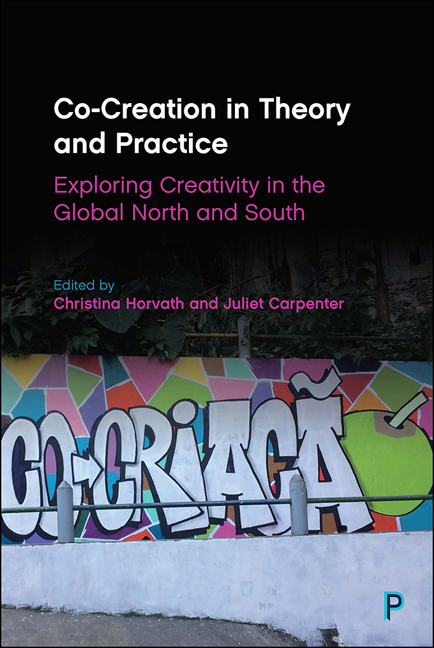14 - Innovative Collaborative Policy Development: Casa Fluminense and Rio’s Public Agenda Challenges
Published online by Cambridge University Press: 18 March 2021
Summary
Introduction
This chapter explores some of the innovative ways in which collaborative approaches to developing urban policy have been undertaken by the Casa Fluminense organisation (Casa Fluminense, 2019a) in Rio de Janeiro, Brazil. It introduces the work and values of Casa Fluminense, which has built on a recent history of participatory planning and policy making in Brazil to develop and test public policy proposals in the Rio de Janeiro Metropolitan Region (RJMR). After introducing the current Rio de Janeiro context and the extreme inequalities experienced across the RJMR, the chapter then tackles the question of how these urban challenges could be addressed through the collaborative work of Casa Fluminense and to what extent their work can be understood as including Co-Creation approaches.
The authors conclude that Casa Fluminense's work includes many successful elements of Co-Creation, especially when working at the neighbourhood level. These feed into the effectiveness of the organisation in developing policy at the metropolitan level where many, but not all, of the Co-Creation principles are utilised, particularly in terms of mapping, networking and collaborative actions. The authors argue that this constitutes a hybrid model of Co-Creation particularly suited to the challenging context of Rio de Janeiro and having an impact at the neighbourhood and metropolitan scale.
Inequality in Rio de Janeiro
The RJMR is an area facing chronic issues of governability, insecurity and inequality and includes 21 municipalities with extremes of marginalisation, exclusion and stigma and with urban issues that are growing ever more socially, politically and physically complex (Ribeiro, 2017). The 21 municipalities are subdivided into three regions: the municipality of Rio de Janeiro itself, which has six million inhabitants; the Baixada Fluminense, made up of 13 municipalities with a population of three million; and the Leste Fluminense which has seven municipalities and also has around three million inhabitants (See Figure 14.1).
To provide an overview of the multiple challenges facing the residents of RJMR, some key facts collated by Casa Fluminense in the form of inequality maps (Casa Fluminense, 2019b) are presented here. In terms of transport, every day around two million people commute from the municipalities where they live to work in the city of Rio de Janeiro, where 74 per cent of jobs in the RJMR are concentrated.x1
- Type
- Chapter
- Information
- Co-Creation in Theory and PracticeExploring Creativity in the Global North and South, pp. 223 - 236Publisher: Bristol University PressPrint publication year: 2020

